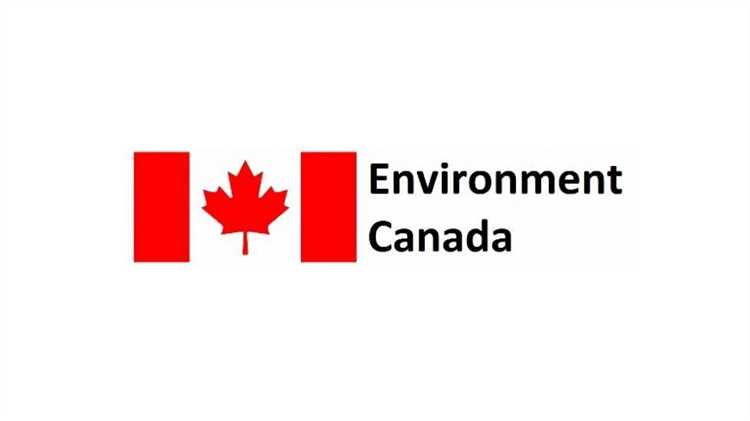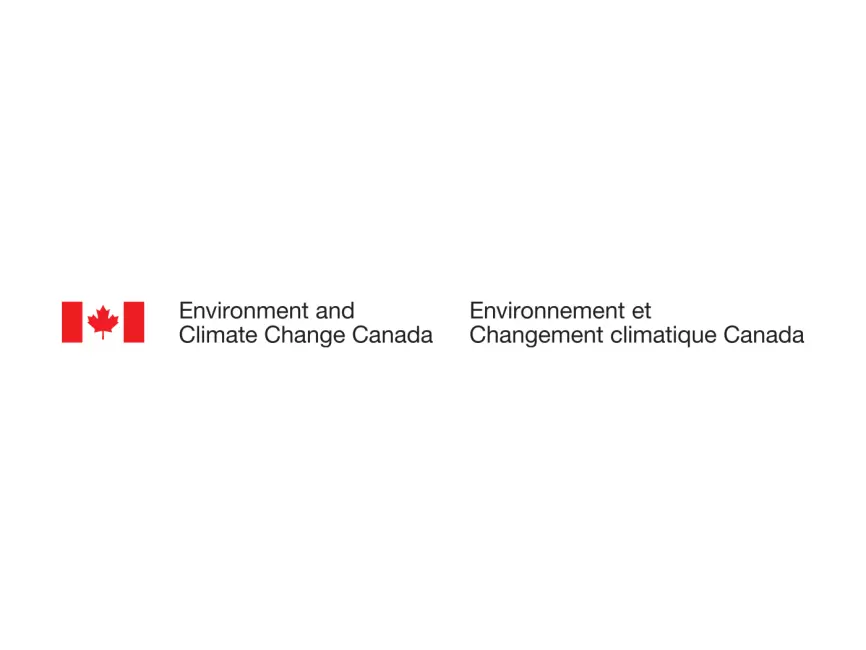
Environment and Climate Change Canada is a government agency dedicated to protecting and conserving the environment and addressing the challenges of climate change. With a wide range of responsibilities, the agency plays a crucial role in ensuring the well-being and sustainability of Canada’s natural resources.
As the environmental issues we face become increasingly pressing, it is essential to have access to accurate and up-to-date information. Environment and Climate Change Canada provides a wealth of resources and data, ranging from air and water quality reports to climate change projections. This information empowers individuals, communities, and decision-makers to make informed choices and take action to protect the environment.
Recognizing that climate change is a global challenge requiring collective action, Environment and Climate Change Canada also works with international partners to develop innovative solutions. Through collaborations such as the Paris Agreement, the agency plays a vital role in shaping global efforts to reduce greenhouse gas emissions and mitigate the impacts of climate change.
Sustainability is at the heart of Environment and Climate Change Canada’s approach. The agency not only focuses on reducing environmental impacts but also strives for sustainable development. By promoting responsible resource management and supporting initiatives that promote clean technologies and green infrastructure, Environment and Climate Change Canada paves the way for a greener and more prosperous future.
In conclusion, Environment and Climate Change Canada is a crucial resource for information and solutions related to environmental protection and climate change. With its dedication to providing accurate data, fostering international collaborations, and promoting sustainable development, the agency plays a vital role in ensuring a sustainable future for Canada and the entire planet.
- Overview of Environment and Climate Change Canada
- What is Environment and Climate Change Canada?
- Mission and Mandate
- Collaboration and Partnerships
- Mandate and Responsibilities
- Key Programs and Initiatives
- Information on Climate Change
- Causes of Climate Change
- Impacts of Climate Change
- Solutions and Measures to Combat Climate Change
- Q&A:
- What is Environment and Climate Change Canada?
- What are some of the initiatives taken by Environment and Climate Change Canada?
- How does Environment and Climate Change Canada provide information on various environmental issues?
- What can individuals do to contribute towards environmental conservation and climate change mitigation?
Overview of Environment and Climate Change Canada
Environment and Climate Change Canada (ECCC) is a government agency dedicated to protecting and preserving the environment and addressing climate change in Canada. It is responsible for developing and implementing policies, programs, and regulations related to environmental protection, conservation, and sustainability.
ECCC focuses on various aspects of the environment, including air and water quality, biodiversity, wildlife conservation, and climate change mitigation and adaptation. The agency plays a key role in developing and enforcing environmental regulations and standards, monitoring and reporting on environmental conditions, and promoting sustainable practices and technologies.
ECCC works closely with other government departments, Indigenous peoples, industry stakeholders, non-governmental organizations, and international partners to achieve its goals and objectives. The agency collaborates on scientific research, data collection, and analysis to better understand the impacts of human activities on the environment and develop evidence-based solutions.
Climate change is a major priority for ECCC. The agency supports Canada’s commitments to reducing greenhouse gas emissions, transitioning to a low-carbon economy, and adapting to the impacts of climate change. ECCC provides funding, information, and technical expertise to provinces, territories, and communities in their efforts to mitigate and adapt to climate change.
Additionally, ECCC plays a vital role in protecting and conserving Canada’s natural resources and heritage. It oversees the management of national parks, wildlife reserves, and protected areas, working to preserve ecosystems, habitats, and species at risk. ECCC also regulates the import and export of wildlife and plants to prevent illegal activities and protect biodiversity.
In summary, Environment and Climate Change Canada is a government agency at the forefront of environmental protection, conservation, and climate change action in Canada. Through its diverse range of programs and initiatives, ECCC aims to safeguard the environment, promote sustainable practices, and ensure a resilient future for all Canadians.
What is Environment and Climate Change Canada?

Environment and Climate Change Canada (ECCC) is the federal government department responsible for overseeing environmental protection and conservation efforts in Canada. It is also responsible for addressing climate change and promoting sustainable development.
ECCC works to safeguard the environment and protect the health and well-being of Canadians by conserving natural resources, protecting biodiversity, and addressing pollution and waste management issues. The department also plays a crucial role in monitoring and assessing the impacts of climate change on Canada’s ecosystems and communities.
One of ECCC’s main responsibilities is to enforce and administer environmental laws and regulations, such as the Canadian Environmental Protection Act and the Species at Risk Act. The department also develops policies and regulations to promote sustainable development and reduce greenhouse gas emissions.
Mission and Mandate
The mission of Environment and Climate Change Canada is to work towards sustainable development and the conservation and protection of Canada’s natural environment, while ensuring the well-being of current and future generations.
ECCC’s mandate includes:
- Protecting Canada’s air, water, and soil quality
- Conserving and restoring biodiversity
- Addressing climate change and promoting clean growth
- Managing chemicals and reducing the risk of toxic substances
- Supporting Indigenous peoples in protecting their environment and natural resources
- Providing weather and environmental predictions and warnings
- Engaging Canadians to take action on environmental issues
Collaboration and Partnerships
ECCC works collaboratively with provincial and territorial governments, Indigenous organizations, non-profit organizations, industry, and other stakeholders to address environmental and climate change issues. Through partnerships and collaboration, ECCC aims to leverage collective efforts and expertise to achieve common environmental goals.
The department also engages with international organizations and participates in international treaties and agreements to address global environmental challenges. ECCC plays a prominent role in international climate negotiations and works towards fulfilling Canada’s commitments under the United Nations Framework Convention on Climate Change.
| Key Functions | Examples |
|---|---|
| Policymaking and regulation development | Developing regulations to reduce greenhouse gas emissions from industries |
| Environmental monitoring and assessment | Assessing the impacts of climate change on Canada’s coasts and oceans |
| Environmental enforcement and compliance | Enforcing regulations on the disposal of hazardous waste |
| Scientific research and innovation | Conducting research on the effects of contaminants on wildlife populations |
Overall, Environment and Climate Change Canada plays a crucial role in protecting the environment, addressing climate change, and promoting sustainable development in Canada.
Mandate and Responsibilities
The mandate of Environment and Climate Change Canada is to conserve and protect the country’s natural environment, including its water resources, wildlife, and biodiversity. The department is responsible for ensuring sustainable development and regulating activities that may have a negative impact on the environment.
Environment and Climate Change Canada works to mitigate and adapt to climate change by implementing policies and programs to reduce greenhouse gas emissions and increase resilience to the impacts of climate change. The department also plays a key role in international climate change negotiations and collaborations.
In addition, the department is responsible for enforcing environmental laws and regulations, such as the Canadian Environmental Protection Act, to ensure compliance and address environmental emergencies. They work to monitor and assess the state of the environment through scientific research and monitoring programs, and provide Canadians with information and tools to make informed decisions about their environment.
Overall, Environment and Climate Change Canada is dedicated to protecting and conserving the environment for present and future generations, working towards a sustainable and climate-resilient Canada.
Key Programs and Initiatives

Environment and Climate Change Canada (ECCC) has implemented several key programs and initiatives aimed at addressing environmental issues and combating climate change. These programs and initiatives are designed to protect and preserve the environment, promote sustainable development, and reduce greenhouse gas emissions. Some of the key programs and initiatives include:
- Greenhouse Gas Pollution Pricing: ECCC has implemented a national price on carbon pollution, which is a key initiative to reduce greenhouse gas emissions. This program ensures that the polluter pays and provides incentives for industries to reduce their emissions.
- Climate Change Adaptation and Resilience: ECCC is committed to helping communities and ecosystems adapt to the impacts of climate change. Through this program, ECCC provides funding, tools, and resources to help communities develop and implement strategies to become more resilient to climate change.
- Zero Plastic Waste Initiative: The Zero Plastic Waste Initiative aims to reduce plastic waste and promote a circular economy for plastics. ECCC is working with businesses, industry stakeholders, and other levels of government to develop innovative solutions to reduce plastic waste and encourage recycling.
- Conservation and Protection of Biodiversity: ECCC is working to protect and conserve Canada’s biodiversity through various initiatives and programs. This includes efforts to protect endangered species, conserve habitat, and promote sustainable land and resource management.
- Clean Air Agenda: The Clean Air Agenda is a comprehensive approach to reducing air pollution and improving air quality. ECCC is implementing measures to reduce emissions from various sources, such as vehicles, industrial processes, and energy generation.
- Weather and Environmental Monitoring: ECCC operates a comprehensive weather and environmental monitoring network across Canada. This network provides real-time data on weather conditions, air quality, water quality, and other environmental indicators to support decision-making and protect the environment.
These are just a few examples of the key programs and initiatives implemented by Environment and Climate Change Canada. Through these programs and initiatives, ECCC is working towards a more sustainable and resilient future, where the environment is protected and climate change is mitigated.
Information on Climate Change
Climate change refers to long-term changes in temperature, precipitation, wind patterns, and other aspects of the Earth’s climate system. These changes are primarily caused by human activities, such as the burning of fossil fuels and deforestation, which release greenhouse gases into the atmosphere.
Causes of Climate Change

The main driver of climate change is the increase in greenhouse gas concentrations in the atmosphere. Greenhouse gases, including carbon dioxide (CO2), methane (CH4), and nitrous oxide (N2O), trap heat from the Sun and warm the Earth’s surface. This is known as the greenhouse effect. The burning of fossil fuels for energy and industrial processes is the largest source of CO2 emissions. Methane is emitted by the agricultural sector, as well as from natural sources such as wetlands and permafrost. Nitrous oxide is mainly released from agricultural and industrial activities.
Deforestation and land use changes also contribute to climate change. Trees absorb CO2 from the atmosphere, so when forests are cleared, this carbon is released back into the atmosphere. Additionally, deforestation reduces the Earth’s capacity to absorb CO2, leading to higher concentrations of greenhouse gases in the atmosphere.
Impacts of Climate Change

Climate change has far-reaching impacts on the environment, human health, and the economy. Rising temperatures and changing precipitation patterns can affect ecosystems, leading to the loss of biodiversity and changes in habitats. Extreme weather events, such as hurricanes, droughts, and floods, are becoming more frequent and intense, causing widespread damage and displacement of populations.
Climate change also poses risks to human health, including increased heat-related illnesses, the spread of infectious diseases, and food and water shortages. Rising sea levels, a consequence of global warming, threaten coastal communities and infrastructure. Moreover, climate change can have significant economic consequences, affecting agriculture, tourism, and infrastructure resilience.
- Loss of biodiversity and habitat destruction
- Increase in extreme weather events
- Health risks and spread of diseases
- Sea-level rise and coastal erosion
- Economic impacts
Addressing climate change requires global cooperation and collective action. Governments, businesses, and individuals all have a role to play in reducing greenhouse gas emissions, transitioning to renewable energy sources, and adopting sustainable practices. By taking action today, we can help mitigate the impacts of climate change and ensure a sustainable future for generations to come.
Solutions and Measures to Combat Climate Change
Climate change is a global challenge that requires a collective effort to reduce greenhouse gas emissions and adapt to its impacts. Here are some solutions and measures that can be taken to combat climate change:
Transition to renewable energy: One of the most effective ways to combat climate change is by transitioning from fossil fuels to renewable sources of energy such as wind, solar, and hydro power. Increasing the use of clean energy can significantly reduce greenhouse gas emissions and help mitigate the effects of climate change.
Energy efficiency: Improving energy efficiency in buildings, transportation, and industries can contribute to reducing greenhouse gas emissions. This can be achieved through measures such as using energy-efficient appliances, insulating buildings, promoting public transportation, and implementing energy-saving practices in industries.
Forest conservation and reforestation: Forests play a crucial role in absorbing carbon dioxide from the atmosphere, acting as carbon sinks. Conserving existing forests and undertaking reforestation efforts can help remove carbon dioxide from the atmosphere and mitigate climate change.
Sustainable agriculture: Agricultural practices that promote sustainable and climate-smart techniques can help reduce greenhouse gas emissions and increase resilience to climate change. This can include practices such as organic farming, agroforestry, and crop rotation.
Adaptation measures: In addition to mitigating greenhouse gas emissions, it is important to adapt to the impacts of climate change. This can involve measures such as building climate-resilient infrastructure, implementing early warning systems for extreme weather events, and developing policies that consider the potential effects of climate change on various sectors.
International cooperation: Climate change is a global problem that requires collective action. International cooperation and agreements, such as the Paris Agreement, are crucial in addressing climate change and ensuring shared responsibility among countries.
By implementing these solutions and measures, we can contribute to the global efforts in combatting climate change and creating a sustainable future for future generations.
Q&A:
What is Environment and Climate Change Canada?
Environment and Climate Change Canada is a government agency in Canada responsible for conserving and protecting the natural environment, as well as addressing climate change issues.
What are some of the initiatives taken by Environment and Climate Change Canada?
Environment and Climate Change Canada has taken several initiatives to address environmental issues and climate change. Some of them include implementing regulations to reduce greenhouse gas emissions, conserving wildlife and habitats, promoting sustainable development, and conducting research on climate change impacts.
How does Environment and Climate Change Canada provide information on various environmental issues?
Environment and Climate Change Canada provides information on various environmental issues through its website, publications, and online tools. They also conduct research and scientific assessments to gather data and generate insights on environmental issues, which are then made available to the public.
What can individuals do to contribute towards environmental conservation and climate change mitigation?
There are several actions individuals can take to contribute towards environmental conservation and climate change mitigation. These include reducing energy consumption and opting for renewable sources of energy, practicing sustainable waste management, conserving water, supporting and participating in local environmental initiatives, and spreading awareness about environmental issues.